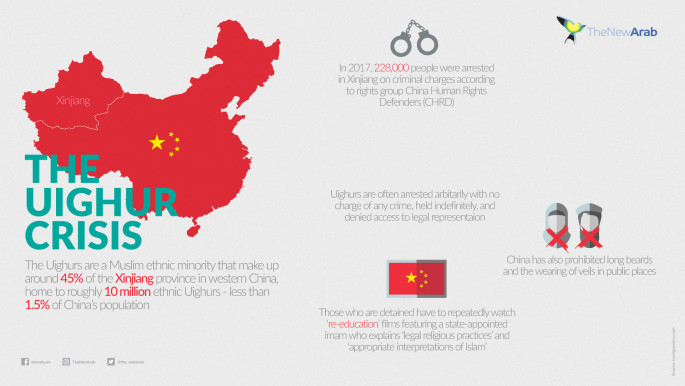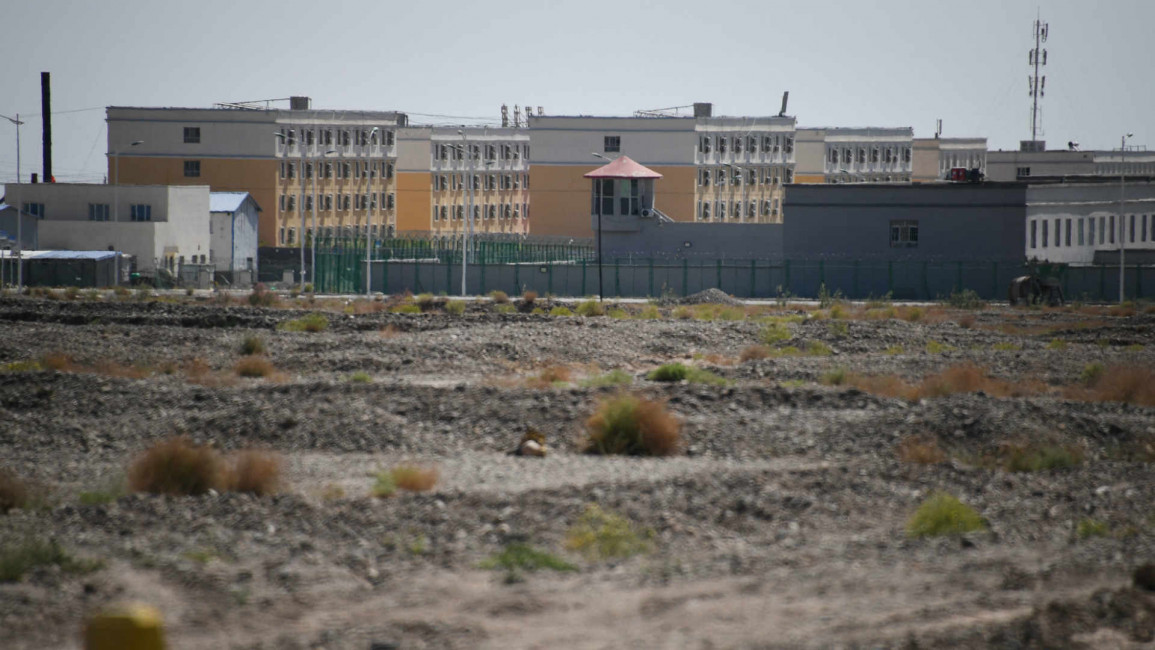China hails Xinjiang 'jobs success' as 'forced labour' condemnation mounts
Beijing has come under intense international criticism over its policies in the northwestern region, where rights groups say at least one million Uighurs and other mostly Muslim minorities are being held in internment camps. Satellite imagery from Xinjiang shows authorities have built more than 260 high security camps since 2016.
US customs said on Monday it would bar a raft of Chinese products from Xinjiang over fears of forced labour, saying "religious and ethnic minorities are... forced to work in heinous conditions with no recourse and no freedom".
Homeland Security Acting Deputy Secretary Ken Cuccinelli told reporters: "This is not a vocational centre, it is a concentration camp."
But Beijing says the centres are for vocational training, necessary for counter-terrorism efforts and to provide education for alleviating poverty.
On Thursday the government published a white paper staunchly defending its policy in the region, where it says training programmes, work schemes and better education mean life has improved.
The report says Xinjiang has "vigorously implemented employment projects, enhanced vocational training, and expanded employment channels and capacity".
It says vocational training for millions has improved the quality of the workforce.
"Xinjiang has built a large knowledge-based, skilled and innovative workforce that meets the requirements of the new era," the report reads.
|
|
Training includes teaching written and spoken Mandarin, labour skills and giving knowledge of urban life, according to the report, which says rural people have started businesses or taken employment in factories after state support.
Every year between 2014 and 2019, Xinjiang gave "training sessions" to an average of 1.29 million urban and rural workers, it says, adding that employment policies "meet the people's needs (and) improve their wellbeing".
However, the white paper warns there is a low level of vocational skills and says "terrorists, separatists and religious extremists" have encouraged the public not to learn Chinese, to "reject modern science, and refuse to improve their vocational skills".
Swedish clothing giant H&M said this week it was ending its relationship with a Chinese yarn producer over accusations of "forced labour" in Xinjiang, which is China's largest cotton growing area.
Beijing has denied claims of forced labour and in Tuesday's report said it would take "resolute action" against it.
The EU meanwhile has urged China to allow independent observers to travel to the highly surveilled region.
China this week said experts were "welcome" but did not detail if they would be allowed free access to the controversial faciltiies.
State media frequently shows apparently happy vocational students studying or working in the large facilities.
But rights groups have warned of forced detentions and political indoctrination as part of a campaign by the Chinese Communist Party to erase the ethnic group's identity and culture.
In a white paper on Xinjiang in March, China defended its controversial security crackdown and said nearly 13,000 "terrorists" have been arrested there since 2014.
Follow us on Facebook, Twitter and Instagram to stay connected



